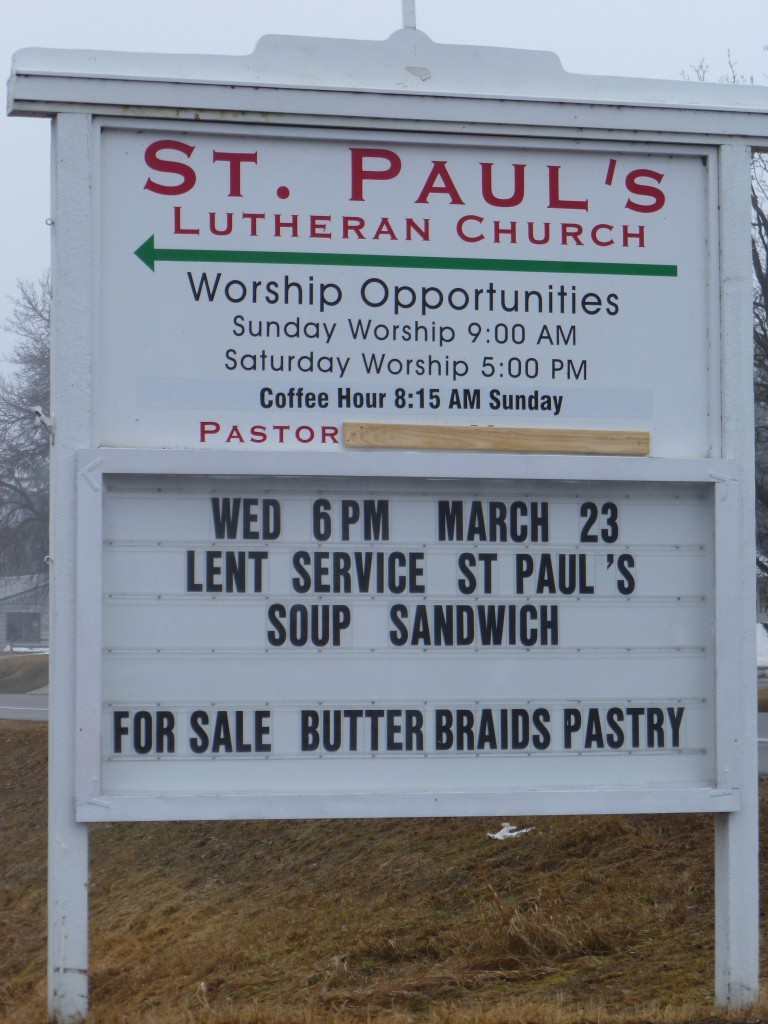I’ve wanted to get this picture into a blog for a long time. In case you can’t see it the Pastor’s name is simply covered up with a board. I suppose that we can look at this in a couple of ways. Either the name of the Pastor is to be secret so that if you come to church it will be a surprize. Perhaps this church goes through Pastors so fast that it is easier to simply cover the name with a board until the new guy comes and then we will get the paint out. Anyway it struck me as a little strange.
We have been having lots of discussion in our circles about the nature of the Office of the Pastor. In some circles, the Pastor is the embodiment of Christ. In others he simply does or performs the functions of an office instituted by God. In still others he is functionary that is more like an “at will employee”.
In the first installment of “One Really New Thing” we closed with these words – “It seems to me that the essence of discipleship is taking the blessings that God gives and using them to feed others.” My contention is that God redeemed us in Christ so that we can live liives of mercy in benefit to our neighbors. In order for that to happen the Office of the Ministry is established by God.
An article in the Concordia Theological Quarterly in 2004 written by Prof. William Weinrich writes, “The ministry is not a result or function of the collective will of individual Christians in a particular congregation. Rather, the necessity of the office arises from the necessity of faith for the justification of the sinner. That is, the necessity of the office arises from the will of God that there be a royal priesthood constituted in faith, as a result of the means of grace that the Office of the Holy Ministry was instituted by God to administer. There can be no hearing of faith if there is no preaching of Christ. There can be no reception of the sacraments if there is no administration of the sacraments. Augustana V puts it in classical terms: “In order that we might obtain this justifying faith, the ministry of teaching the gospel and of administering the sacraments was instituted.”
So for there to be “priests” that live lives of mercy, there have to be Pastors that preach the Gospel and administer the Sacraments. Pastors are to equip the Saints to live lives of mercy. This is the rationale behind the words of our District President Dr. Baneck –
We affirm the understanding that pastors of the ND District are leading, teaching, and encouraging their congregations to go into their community, having Christ-like love for their neighbor. To this end, I would hold up to the District these three priorities for our pastors under the heading of Mercy 1. Pastors are visibly and actively interacting with the people in their community 2. Pastors are actively leading their congregations into the community to do acts of mercy 3. Pastors are in conversation with the leaders of the community as to community needs and concerns (mayor, school principal, police, etc).
I pray that church somewhere in Minnesota was able to get the paint can out.


